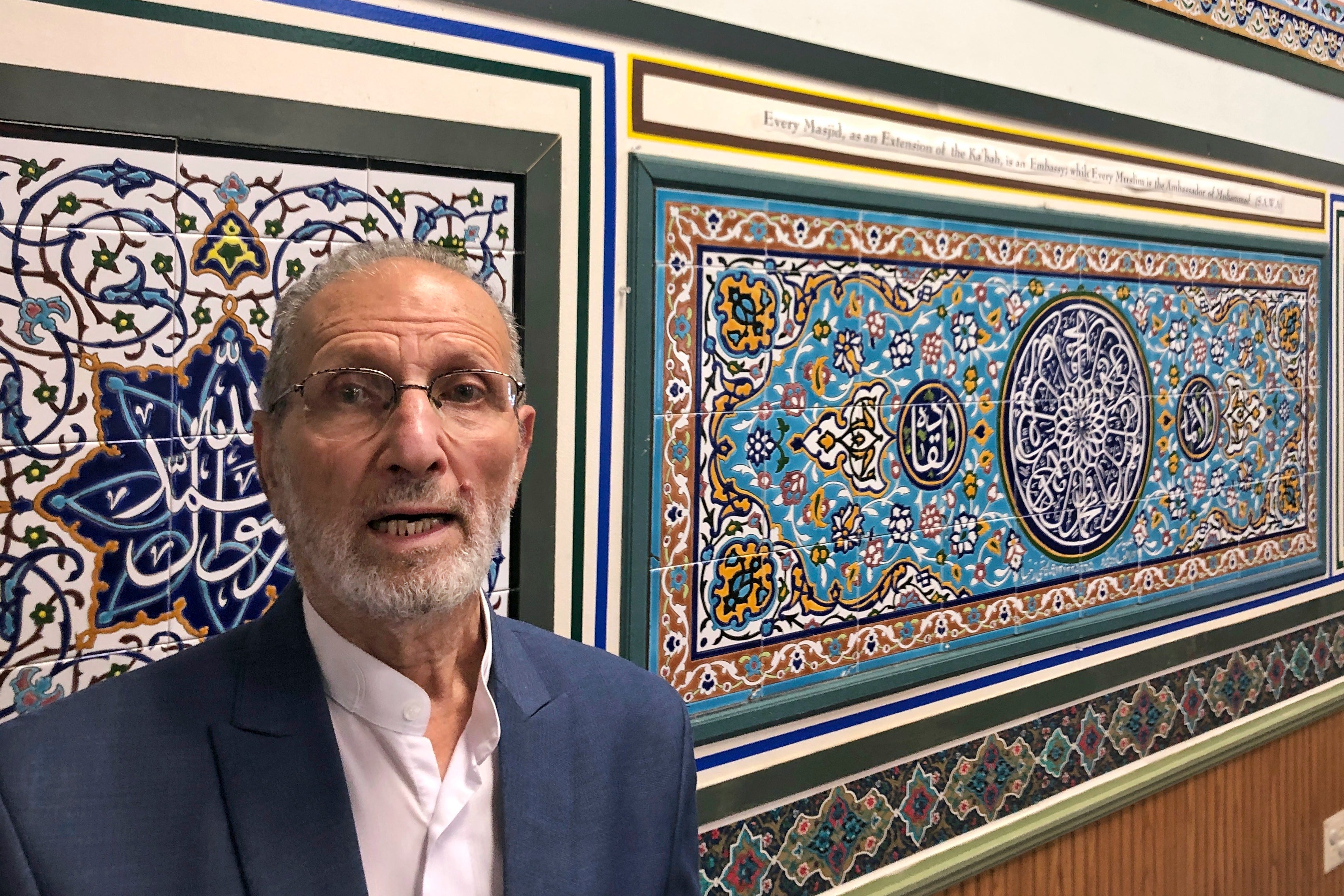Sanctions on Iran block mosque from claiming religious tiles
A northern Virginia mosque is asking the Biden administration to release a set of religious tiles that were confiscated at Dulles International Airport after they were deemed to violate sanctions on Iran

Your support helps us to tell the story
From reproductive rights to climate change to Big Tech, The Independent is on the ground when the story is developing. Whether it's investigating the financials of Elon Musk's pro-Trump PAC or producing our latest documentary, 'The A Word', which shines a light on the American women fighting for reproductive rights, we know how important it is to parse out the facts from the messaging.
At such a critical moment in US history, we need reporters on the ground. Your donation allows us to keep sending journalists to speak to both sides of the story.
The Independent is trusted by Americans across the entire political spectrum. And unlike many other quality news outlets, we choose not to lock Americans out of our reporting and analysis with paywalls. We believe quality journalism should be available to everyone, paid for by those who can afford it.
Your support makes all the difference.A northern Virginia mosque is asking the Biden administration to release a set of religious tiles that were confiscated at Dulles International Airport after they were deemed to violate sanctions on Iran
At a news conference Tuesday at the Manassas Mosque, Imam Abolfazl Nahidian said the custom-made tiles were shipped in June from the Iranian city of Qom, to be used in construction of a new mosque a few miles away.
He said the tiles were a gift and he paid no money for them, but a Customs and Border Protection officer at the airport blocked the mosque from claiming the tiles, citing the sanctions.
Nahidian said he has received other tile shipments throughout the years without incident, including one shipment that arrived eight months ago.
A letter from Customs and Border Protection informed the mosque that the tile must be shipped back to Iran or destroyed.
Destroying the tiles, which are adorned with Quranic verses, would be especially disturbing, Nahidian said.
“Destroying the tiles is the same as destroying verses of the Quran, or the whole Quran itself,” he said.
Nihad Awad, executive director of the Council on American-Islamic Relations, said that whatever one's views are of the Iranian sanctions, it makes no sense to enforce the rules on a benign piece of religious art.
“They are not weapons of mass destruction,” Awad said. “We believe the government should have common sense.”
A spokesperson for Customs and Border Protection confirmed that the tiles were placed on hold June 21 and that on June 30, the Treasury Department s Office of Foreign Asset Control determined that, under the sanctions imposed on Iran, the tiles could not be imported. The spokesperson said no final determination has been made on the tiles' disposition.
The Treasury Department did not respond to emails seeking comment Tuesday.
Speakers at Tuesday's news conference suggested that anti-Islam sentiment may be responsible for the confiscation.
“If this were a statue of the Virgin Mary would we be here discussing this?” asked Rafi Uddin Ahmed, president of the Muslim Association of Virginia.
Nahidian has led the mosque for nearly three decades, and has occasionally drawn scrutiny from critics who say he is anti-Israel and was a supporter of the ayatollahs in the Iranian Revolution. He has blamed the Sept. 11 attack on Israel; in 1979, he and others chained themselves to the railings of the Statue of Liberty after climbing to the top and unfurling banners criticizing the shah of Iran, who was overthrown.
Nahidian said his history is irrelevant to whether the tiles should be imported.